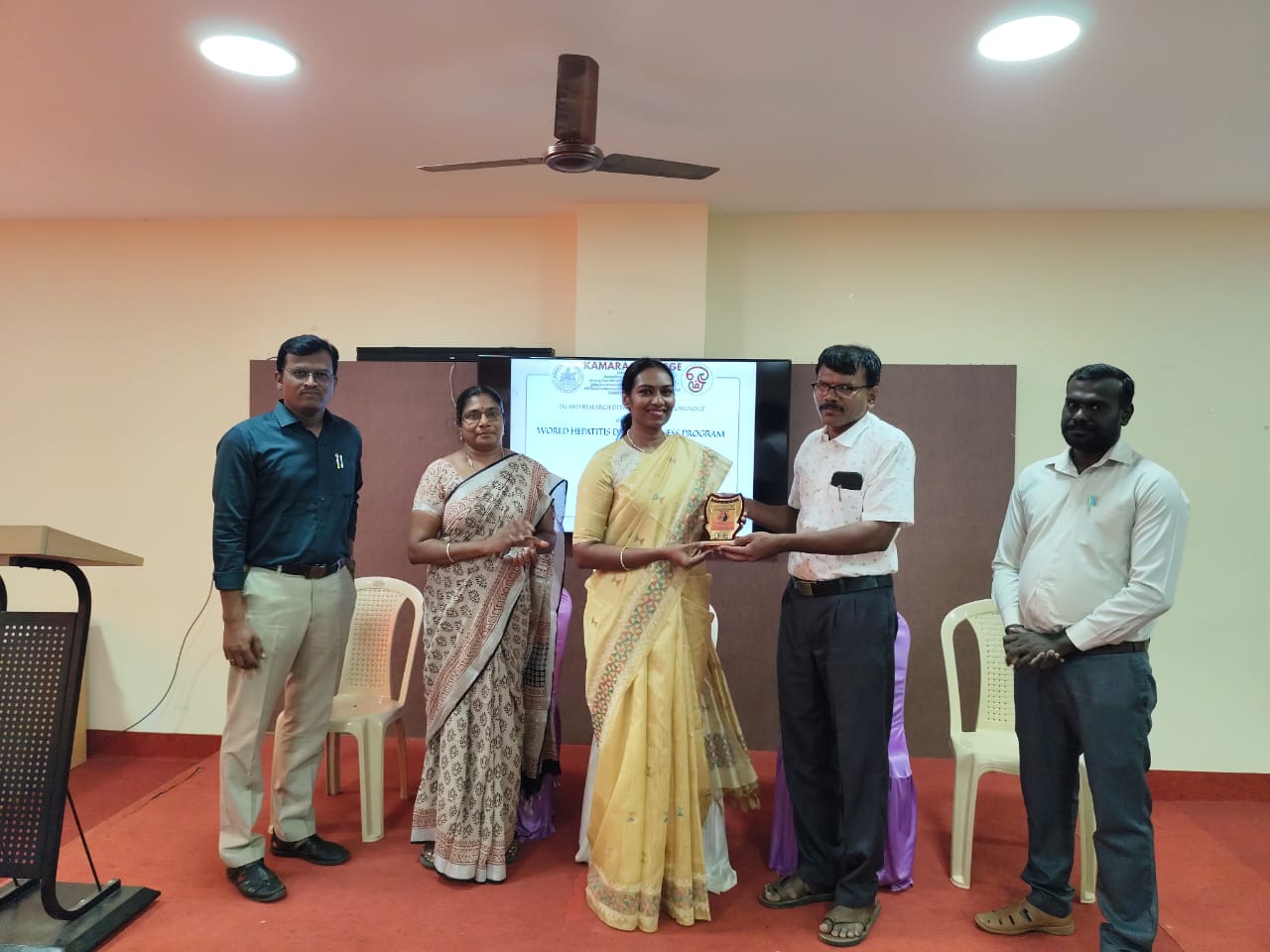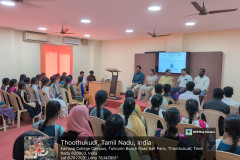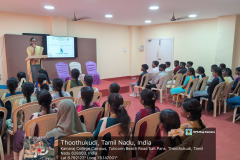
World Hepatitis Day 2025: Powerful Awareness Program Enlightens 100+ Students
World Hepatitis Day 2025
The Post Graduate and Research Department of Microbiology at Kamaraj College organized an insightful and impactful awareness program on the occasion of World Hepatitis Day on 31st July 2025. This important initiative aimed to educate students about Hepatitis, its types, the stigma attached to the disease, and the importance of liver health in today’s lifestyle.
The awareness event was graced by a distinguished expert in the field, Dr. Sangeetha Thanaraj, FRCP (London), MRCP, and renowned Consultant Gastroenterologist. Her presence brought depth and relevance to the event, offering students a chance to learn from real-life experience and medical expertise.
Inauguration and Welcome by the College Leadership
The session began with a formal inauguration, where Dr. A. Arunachala Rajan, Vice Principal of Kamaraj College, honored the chief guest with a warm welcome. He appreciated the department’s consistent efforts in organizing health awareness activities that benefit the student community and promote preventive healthcare education.
The event for World Hepatitis Day 2025 was efficiently planned and executed under the leadership of Dr. S. Abirami, Head of the Department of Microbiology. Her guidance and coordination ensured that the program was both educational and inspiring.
Expert Talk on Hepatitis and Liver Health
The core of the event was the expert lecture by Dr. Sangeetha Thanaraj. She addressed the students with great clarity and compassion. Her talk focused on multiple aspects of Hepatitis, including its types—A, B, C, D, and E—how it spreads, how it can be prevented, and what modern treatments are available.
She emphasized the importance of early detection and encouraged students to be aware of their own health and routine checkups. One of the key points of her session was the harmful impact of misconceptions and the social stigma attached to Hepatitis. She urged the students to spread awareness among their families and friends, emphasizing that education and empathy are the strongest tools in the fight against disease and discrimination.
Lifestyle and Food Habits: Silent Contributors to Liver Diseases
In addition to discussing Hepatitis, Dr. Sangeetha broadened the scope of her presentation by educating the students about general liver health and how modern food habits and lifestyle choices can contribute to liver damage.
She explained how fatty liver disease, alcohol consumption, lack of exercise, and intake of processed food can slowly deteriorate liver function. Students listened attentively as she provided practical advice on making simple but effective changes in daily life that can help preserve liver health.
Interactive Session with Students
The session also included a lively and meaningful interaction between the students and the guest speaker. Many students asked questions about the transmission of Hepatitis B and C, the availability of vaccines, the role of the immune system, and the symptoms one should watch out for. Dr. Sangeetha patiently answered each question and motivated students to remain curious and proactive about health topics.
The interaction made the session even more engaging and informative. It bridged the gap between theoretical knowledge and real-world medical practice, leaving a lasting impression on the students.
A Successful and Thought-Provoking Program
World Hepatitis Day 2025 program was not just an academic activity but a call to action for students to adopt healthy lifestyles and spread awareness in their communities. It highlighted the responsibility of educated youth in promoting public health and challenging the taboos around chronic diseases.
The event concluded with a note of thanks delivered by the department, acknowledging the contributions of all who made the program successful—from the guest speaker to the organizing faculty and the students who participated with enthusiasm.
This awareness program on World Hepatitis Day 2025 will remain a memorable experience for all attendees, and the Department of Microbiology plans to organize similar events in the future to foster a deeper understanding of health issues.


